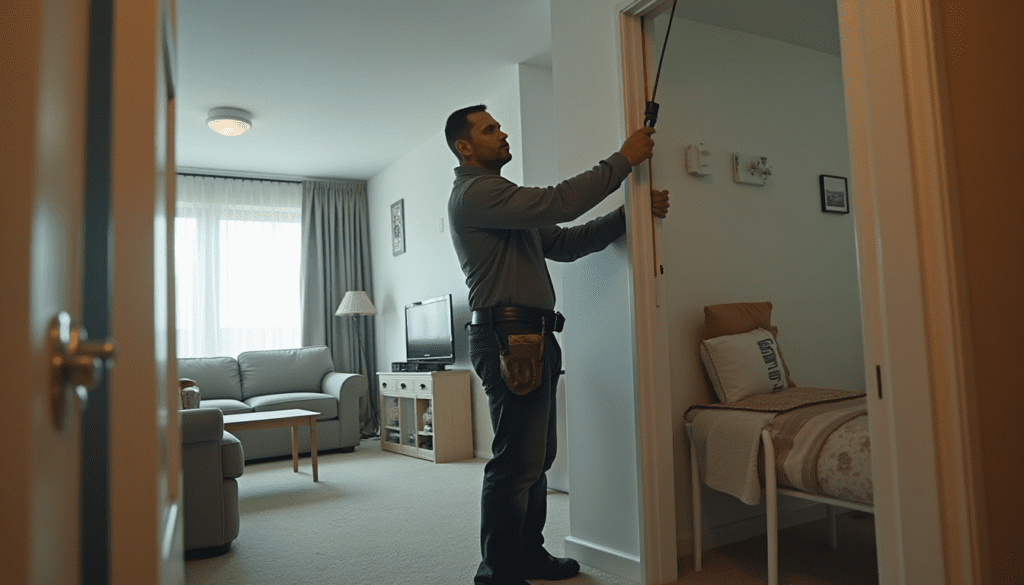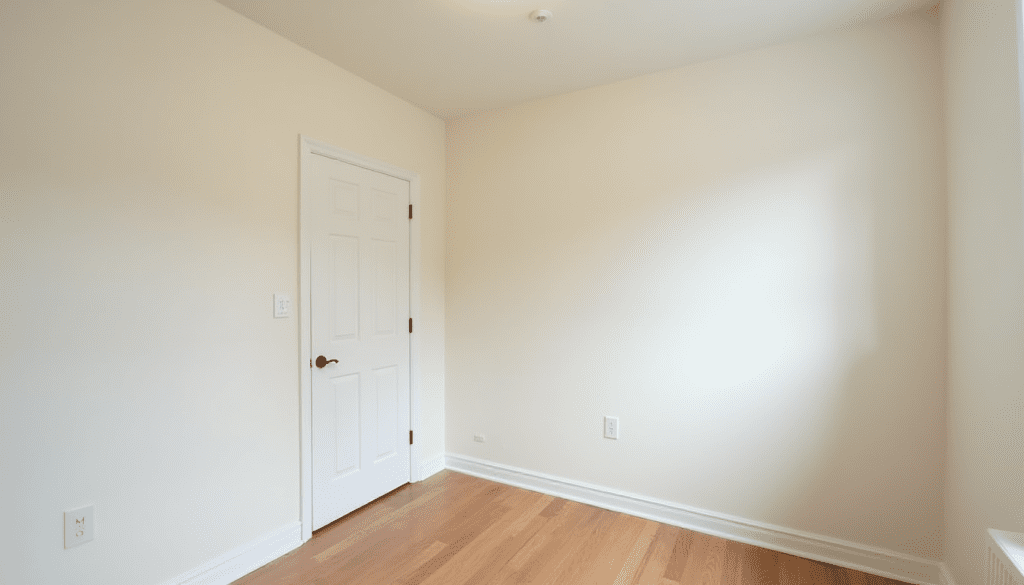If you’ve heard about a “3-Day Notice to Pay or Quit” and you’re operating in Newark, NJ, you’re probably wondering whether that famous three-day ultimatum actually applies to local rent issues. The short answer is: in New Jersey, that specific notice is generally not the tool used for ordinary nonpayment cases. Instead, the state’s Anti-Eviction Act guidance makes clear that a formal “Notice to Quit” is typically required for most good-cause grounds except nonpayment of rent, while the New Jersey Courts landlord-tenant hub likewise explains that special notices are required when the reason is something other than unpaid rent. That means Newark landlords and tenants need a Newark-and-New-Jersey-specific playbook—not a generic three-day template from another state.
As you read, you’ll see exactly when a short, three-day notice really appears in New Jersey (clue: disorderly conduct, substantial damage, or illegal activity), how Newark’s rent control and “unconscionable increases” ordinances interact with state law, and the practical steps both sides actually take when rent isn’t paid. To go deeper on operations and policy details for your Newark rentals, you can also browse related guides on your site like managing chronic late payers, reasonable late fee policies, and filling vacancies quickly.
Does New Jersey Use a 3-Day “Pay or Quit” for Unpaid Rent?
In a typical private (non-subsidized) rental, New Jersey does not require a 3-day pay-or-quit notice before filing a nonpayment case. Instead, the anti-eviction framework and court process control the timeline. The state’s Grounds for Eviction bulletin emphasizes that a “Notice to Quit” is required for most good-cause reasons other than nonpayment. The NJ Courts landlord-tenant page echoes this by flagging special notice duties when the case isn’t about unpaid rent. For many readers who’ve encountered three-day notices in other states, this feels counterintuitive—but it’s exactly why applying out-of-state forms can backfire in Newark.
Why the difference? New Jersey’s Anti-Eviction Act focuses on good cause and procedural fairness. When the reason is nonpayment, the case typically proceeds through the Superior Court, Special Civil Part (Landlord/Tenant) without a pre-filing quit notice. If the reason is something else—like habitually late rent, rule violations, or serious misconduct—then state law layers on specific notice rules (often including “notice to cease” and “notice to quit”) before court. The statutory backbone for these notice mechanics is N.J.S.A. 2A:18-61.2, which spells out when and how notices must be served to support a judgment of possession.
Practical takeaway for Newark landlords and tenants: use state-specific guidance first. Review the Truth in Renting handbook and the NJ Courts tenant information sheet to align expectations about timing, payment, and defenses. Tenants should also be aware of post-judgment options the courts describe (for example, limited windows to cure by paying arrears), as outlined in court FAQs like “What can the tenant do after judgment for possession is entered?”.
What a 3-Day Notice Does Cover in New Jersey
So where does a three-day notice actually fit? Under the Anti-Eviction Act, the short-fuse notice shows up for acute conduct issues such as disorderly behavior, willful or grossly negligent property damage, or illegal activity. In those scenarios, the law allows landlords to move faster because the alleged conduct threatens other residents or the property. You can trace these rules through the statute and state guidance: see N.J.S.A. 2A:18-61.2 for notice timing by ground and the DCA’s Grounds for Eviction bulletin for plain-English explanations of when “cease” and “quit” notices are required.
If you’re a Newark landlord confronting serious conduct, be meticulous about service and documentation (dates, delivery method, and the specific facts alleged). Courts frequently scrutinize whether the correct notice type was given, whether a prior “notice to cease” was necessary, and whether the service method complies with statute. A misstep can derail the case even when the underlying conduct is compelling—another reason to confirm your process against NJ Courts guidance and the statutory text in 2A:18-61.2.
Newark vs. New Jersey: How Local Rent Control Fits In
Newark’s local policy framework sits on top of state law—so it’s essential to distinguish what the city regulates from what the state controls. Newark has rent control rules that cap annual increases for covered units and a city stance against “unconscionable” hikes in some non-rent-controlled buildings. For example, the municipal code (see eCode360) states that allowable increases for rent-controlled units cannot exceed a defined cap in ordinary circumstances, and the City has also publicized an “Unconscionable Rent Increase” initiative. News coverage has highlighted these limits for certain buildings newly exempt from older controls, including a 5% cap context in public discussion (NJ Spotlight News). The City’s own Rent Control Department page provides program history and past executive actions related to rent adjustments.
Here’s what that means for the “3-day” conversation: local rent control and anti-gouging policies influence pricing and increases, not the core state notice rules for nonpayment. In other words, Newark’s rent caps or “unconscionable” standards won’t convert a nonpayment matter into a three-day pay-or-quit scenario. State eviction law still governs whether a notice is required and which kind. If your nonpayment case stems from a contested rent increase, check Newark’s rent control rules first to confirm whether the increase was permissible and properly noticed (the Truth in Renting handbook also discusses rent-increase notice concepts under state law).
To keep operations smooth, many Newark owners invest in upfront tenant education and policy hygiene. Useful refreshers include your guides on attracting qualified tenants, inspection checklists, and modern payment workflows like Zelle/Venmo rent collection. These aren’t legal silver bullets—but they significantly reduce late-rent friction that can spiral into filings.
If Rent Isn’t Paid in Newark: The Actual Steps Landlords Take
When rent is missed in a typical Newark private rental, the process is usually driven by the court timeline—not by a three-day pay-or-quit demand. New Jersey generally allows filing a nonpayment case without a prior notice to quit (again, see the DCA’s Grounds for Eviction bulletin and the NJ Courts page). That said, smart landlords still document a clear paper trail: a written late-rent reminder, a ledger snapshot, and an invitation to cure. Tenants should promptly communicate, request a payment plan where appropriate, and verify any rent-increase math against Newark rules (see rent control code and City announcements on unconscionable increases).
Once in court, both sides should come prepared. Landlords need lease copies, ledgers, and any notices used; tenants may bring proof of payment, habitability concerns, or other defenses the Legal Services of New Jersey materials describe. If a judgment of possession is entered, court FAQs explain limited windows for curing by paying arrears (see post-judgment options). To avoid repeat nonpayment cycles, put policy tuning on your roadmap: your article on managing consistently late tenants pairs well with fair fee structures in Reasonable Late Rent Fees in Newark, NJ.
Habitual Late Rent = 30-Day Notice to Quit
New Jersey treats habitual lateness differently from a one-off missed payment. Habitual late payment is a distinct ground for eviction that typically requires a notice to cease (warning) and then a 30-day notice to quit before filing—this is where the state’s notice architecture becomes essential. The timeline specifics flow from 2A:18-61.2 and are summarized in practice materials like the Volunteer Lawyers for Justice training chart. Landlords in Newark should standardize a calm, repeatable process for documenting late payments, furnishing a notice to cease, and—if behavior doesn’t change—issuing the 30-day notice to quit. For templates and tone, see your Newark-specific article on consistently late tenants to keep your communications compliant and de-escalatory.
Public/Subsidized Housing: 14-Day Federal Notice Rule
Public housing and many subsidized tenancies follow federal timelines layered over state law. For nonpayment in public housing, federal regulations require at least a 14-day notice before termination. You’ll see this in 24 C.F.R. § 966.4 and HUD implementation resources such as the ACOP Lease Requirements guide. Legal Services of New Jersey also flags the 14-day standard for public housing in its tenant materials (Tenants’ Rights in NJ and eviction defenses). HUD has continued reminding PHAs about their notice duties in recent Federal Register guidance (notice and grievance reminders), and local PHAs are expected to align their ACOPs and lease language with these rules.
Because Newark contains a mix of market-rate, rent-controlled, and subsidized units, it’s critical for both landlords and tenants to identify the housing type early. That single fact determines whether the nonpayment path is “file without a pre-quit notice” (typical private rentals) or “serve a 14-day federal notice first” (public housing). When in doubt, check the lease packet for PHA headers and cross-reference your rights in 24 C.F.R. § 966.4 and LSNJ’s guides.
Need help tailoring next steps to your Newark property type and tenant profile? You can reach the local team directly through the RentShield contact page or by phone at (201) 630-0707.
Disclaimer: This content is for educational purposes only and is not legal advice. Housing laws and local ordinances change, and your situation may be different. Always consult a qualified attorney or the appropriate agency before taking action. Key references include the NJ Courts landlord-tenant hub, the DCA’s Grounds for Eviction bulletin and Truth in Renting, Newark’s Rent Control resources, municipal code, N.J.S.A. 2A:18-61.2, LSNJ eviction defenses, and federal public-housing rules at 24 C.F.R. § 966.4.
::contentReference[oaicite:0]{index=0}
Timelines at a Glance (3-Day, 30-Day, 0-Day, and 14-Day)
Because so many readers arrive searching for “3 day notice to pay or quit Newark NJ,” here’s the quick, New Jersey–specific reality check you can actually use when building your rent collection playbook. For ordinary nonpayment in private (non-subsidized) rentals, New Jersey typically allows landlords to file in court without a prior quit notice—your timeline is driven by the NJ Courts landlord-tenant process, not a three-day ultimatum. For serious conduct (disorderly behavior, willful damage, illegal activity), state law authorizes a fast 3-day notice under N.J.S.A. 2A:18-61.2. For habitual late rent, the path usually requires a notice to cease followed by a 30-day notice to quit (again, see 2A:18-61.2 and DCA’s Grounds for Eviction bulletin). In public housing and many subsidized tenancies, a 14-day federal notice precedes termination for nonpayment (see 24 C.F.R. § 966.4). Put simply: 0-Day (file) for nonpayment in private rentals, 3-Day for serious conduct, 30-Day for habitual late, and 14-Day for public housing—and all of it is filtered through the Superior Court, Special Civil Part (Landlord/Tenant) in Essex County via the NJ Courts system and related procedures. For a practical deep dive on recurring late rent, pair this with your internal guide: How Landlords in Newark, NJ Can Manage Tenants Who Consistently Pay Rent Late.
Creator tip: When you produce a visual timeline for the blog, label each lane with the authority that drives it (e.g., “2A:18-61.2” for 3-day/30-day; “24 C.F.R. § 966.4” for 14-day; “NJ Courts” for the filing step) so readers can verify details quickly.
How Newark Rent Control & “Unconscionable” Increases Affect Nonpayment Cases
Newark’s rent control framework and public stance on “unconscionable” rent increases shape the price that’s legitimately due—but they don’t rewrite New Jersey’s statewide notice architecture. Start with the City’s own Rent Control Department page for scope and functions, then consult the codified rules in eCode360 (look at the amended sections and definitions to confirm whether your unit is covered and how caps apply). The City’s “Know Your Rights” outreach and updates—such as public materials and notices on rent limits and enforcement priorities (see the City’s Evictions resources card)—can help you sanity-check increases before you treat an unpaid balance as “nonpayment.” If a disputed increase exceeds what Newark allows or fails local notice requirements, you may have a pricing problem, not a simple nonpayment case, and the court will expect the math to be right.
On the state side, New Jersey’s DCA publications explain good-cause grounds and reference rent-increase reasonableness under the Anti-Eviction Act (see the Grounds for Eviction bulletin and related DCA publications portal). If a tenant is refusing to pay after a disputed hike, make sure the increase complies with Newark caps and was properly noticed; then confirm the legal ground you’re actually proceeding under (e.g., nonpayment vs. failure to pay a lawful increase). For owners looking to prevent escalation, your late-fee piece—Reasonable Late Rent Fees in Newark, NJ—helps keep charges reasonable and defensible.
Serving Notices Correctly (When Required): Methods, Proof, and Common Mistakes
Whether you’re issuing a 3-day quit for serious conduct or a 30-day notice to quit after a notice to cease for habitual lateness, service and content must match New Jersey’s statute. The baseline is N.J.S.A. 2A:18-61.2, which lays out the required notice periods, content elements, and service expectations for Anti-Eviction Act cases (and also notes the nonpayment exception). On a practical level, judges scrutinize how the notice was delivered, whether the facts alleged are specific enough, and whether the chronology is correct. Cross-check your approach with the NJ Courts landlord-tenant hub and the Judiciary’s Landlord-Tenant Procedures handout before you file.
Common errors Newark landlords can avoid: sending the wrong notice type (e.g., “3-day” for routine nonpayment), skipping the notice to cease step where it’s required, miscalculating a 30-day window, or serving in a way you can’t later prove. When in doubt, compare your draft to the law and to DCA’s Grounds for Eviction bulletin. Tenants should also know that self-help lockouts are illegal—eviction requires a court order and officer; see the court materials above and broader context about illegal lockouts and enforcement gaps reported nationally (Business Insider investigation), reinforcing the need to use the court process in Newark.
Tenant Defenses & Pay-and-Stay Options
New Jersey law and court practice leave room for tenants to cure or defend, and Newark cases are no exception. The NJ Courts landlord-tenant page and forms explain relief possibilities and timelines (including limited post-judgment options to reinstate by paying arrears, as described in Judiciary FAQs and brochures). Legal Services of New Jersey summarizes common defenses—habitability issues, improper notice/service, retaliation, or disputes over lawful rent increases. If the alleged arrears stem from a rent hike, Newark’s rent control resources (Rent Control Department; eCode360) help verify whether the increase was legal and properly noticed.
For subsidized tenancies, remember the 14-day federal notice rule (24 C.F.R. § 966.4). If the unit is public housing and the landlord skipped that step, tenants can raise the defect. Conversely, for private Newark rentals, there often isn’t a prerequisite quit notice before filing for nonpayment—so tenants should focus on payment, documentation, and any legitimate defenses rather than waiting for a three-day letter that may never come. To prevent future cycles, pair payment plans with behavior resets: see your internal guide on consistently late tenants and the late-fee calibration in Reasonable Late Rent Fees in Newark, NJ.
Step-by-Step: From Missed Rent to Court in Essex County (Landlord & Tenant Checklist)
Step 1: Identify the housing type and ground. Is this private market nonpayment or subsidized housing (14-day federal notice)? Is it serious conduct (3-day quit) or habitual late rent (cease + 30-day quit)? Use 2A:18-61.2 and DCA’s Grounds for Eviction to confirm.
Step 2: If required, serve the correct notice correctly. Align content and service with the statute; document dates and delivery. Don’t conflate a “3-day pay or quit” with ordinary nonpayment.
Step 3: Prepare your filing packet for the Special Civil Part (Landlord/Tenant). Lease, ledger, notices (if any), proofs of service, photos/records for conduct cases. The NJ Courts hub and forms library provide procedural guides and PDFs; also review the Judiciary’s Landlord-Tenant Procedures.
Step 4: Serve and track your court date. Essex County matters flow through the statewide system; use Judiciary guidance to monitor filings and comply with evidence and appearance rules. (Attorneys also use eCourts and eFiling.)
Step 5: Be settlement-ready. Many Newark cases resolve with payment schedules or move-out agreements. Courts encourage settlement where appropriate, and your late-payer management article can help structure realistic plans that actually get rent current.
Step 6: Enforce legally—never self-help. Only a court officer can execute a lockout after judgment and warrant. Avoid illegal self-help (lock changes, utility shutoffs); the law requires you to go through the court process. For context on why this matters, see the court materials above and reporting on illegal lockouts (investigative overview).
Step 7: Tighten operations to prevent repeats. Update lease language (late fee reasonableness, online payment options), educate residents, and streamline reminders. Your Newark-focused pieces—Landlord Tips in Newark and late-fee guide—offer practical checklists. When you need tailored help, use the RentShield contact page to reach a local expert.
Note: For tenants facing financial hardship or complex defenses, consult Legal Services of New Jersey and the NJ Courts self-help materials. The City of Newark also aggregates links to DCA bulletins and resources on its Evictions resources card.
::contentReference[oaicite:0]{index=0}
Real-World Newark Scenarios
First-Time Late Payment
You’re a Newark landlord and the rent due on the first still isn’t in by the fifth. In a typical private (non-subsidized) tenancy, New Jersey law does not require a “3-Day Notice to Pay or Quit” before you can file; instead, you proceed under the statewide NJ Courts landlord-tenant process. Still, best practice is to send a clear, dated reminder with a current ledger, invite the tenant to cure immediately, and confirm whether any recent rent increase complies with Newark’s rules (check the City’s Rent Control Department and the codified provisions in eCode360). If everything is lawful and the arrears aren’t paid, the case can be filed without a prior quit notice for nonpayment. Tenants should review the Truth in Renting guide and NJ Courts materials on post-filing options and limited post-judgment relief.
Habitual Late Payment
Now imagine a renter who pays late almost every month. That’s different. Habitual lateness is a separate ground under New Jersey’s Anti-Eviction Act that typically requires a notice to cease followed by a 30-day notice to quit before filing—see N.J.S.A. 2A:18-61.2 and confirm details in DCA’s Grounds for Eviction bulletin. If your records show a pattern, escalate in writing using the correct sequence. Your internal playbook on managing consistently late tenants and calibrating reasonable late fees in Newark can help resolve issues before court.
Disorderly Conduct or Damage (3-Day Quit)
If the issue is serious conduct—disorderly behavior, willful or grossly negligent property damage, or illegal activity—New Jersey allows a 3-day notice to quit. These are the scenarios where the short-fuse notice actually applies under the Anti-Eviction Act; see 2A:18-61.2 and the explanatory guidance in DCA’s Grounds for Eviction. Document facts precisely, serve correctly, and follow the NJ Courts process for your hearing.
Forms & Where to File (with Authoritative Links)
Most Essex County landlord-tenant matters are handled in the Superior Court, Special Civil Part, through statewide systems and forms. Start at the Judiciary’s Landlord-Tenant Self-Help portal, where you’ll find instructions, filing pathways, and relevant FAQs (including post-judgment options for tenants). For procedural snapshots, review the Court’s Landlord-Tenant Procedures handout. If you or counsel file electronically, the eCourts and eFiling page explains access. Always match any required notice to the statute—2A:18-61.2—and verify housing-type overlays like the 14-day federal notice for public housing (24 C.F.R. § 966.4).
Before treating a balance as due, owners in Newark should confirm rent-increase legality against the City’s program information (Rent Control Department) and the ordinance text in eCode360. If the numbers aren’t right, the court will notice. For tenants, DCA’s Truth in Renting is an accessible walkthrough of key issues, and Legal Services of New Jersey provides defense checklists and guidance.
When to Talk to a Lawyer or the Office of Tenant Legal Services in Newark
If your case involves disputed rent increases, possible notice defects, public/subsidized rules, or urgent conduct allegations, get legal help early. Attorneys can confirm the correct ground, notice sequence, and service method—preventing errors that cost time and money. Newark residents can also consult the City’s centralized Evictions resources card, which aggregates links and contacts, and then follow up with the Rent Control Department for rent-stabilization inquiries. Tenants who qualify should reach out to LSNJ for representation or advice. Remember, illegal self-help is off-limits; stick with the court process outlined by the NJ Courts to protect everyone’s rights.
Prevention: Leases, Late-Fee Clauses, Payment Systems, Communication
Most “3-day notice” Google searches reflect frustration, not strategy. The better path is prevention. Use a lease that is crystal-clear on due dates, grace periods, and reasonable late fees—then enforce it consistently. Calibrate policies with your own resources: Reasonable Late Rent Fees in Newark, NJ explains balancing deterrence with fairness, while Using Zelle or Venmo for Rent Payments Safely reduces friction by meeting residents where they already pay. Pair that with proactive operations—your Newark rental inspection checklist and attract tenants fast tips help you fill units with renters who pay on time and respect house rules.
Communication matters as much as clauses. Adopt a “nudge-then-notice” rhythm: friendly reminders right after a miss, followed by formal steps when required under 2A:18-61.2 (for habitual lateness or conduct cases) or, for public housing tenants, a 14-day federal notice before termination (24 C.F.R. § 966.4). Keep a calm tone and detailed records; your paper trail becomes the backbone of any court presentation within the NJ Courts system.
Local Resources & Help (Newark / Statewide)
- NJ Courts Landlord-Tenant Hub – Process, forms, timelines, and post-judgment information.
- NJ DCA – Grounds for Eviction Bulletin and Truth in Renting – Plain-English guides to rights and duties.
- N.J.S.A. 2A:18-61.2 – Statutory notice mechanics (including 3-day and 30-day contexts).
- City of Newark – Rent Control Department and Newark eCode360 – Determine coverage and caps before treating amounts as “due.”
- City of Newark – Evictions Resources Card – Local help and agency links.
- Legal Services of New Jersey – Tenant defenses, public-housing overlays, and representation.
- eCourts & eFiling – For attorneys and electronic submissions.
Talk to a Newark Specialist Today
Every building and lease is a little different. If you’re navigating nonpayment, habitual late rent, or a potential 3-day conduct issue, get a Newark-specific plan. The RentShield team can review your documents, timeline, and service options against NJ Courts procedure, 2A:18-61.2, and Newark’s rent rules (Rent Control Department; eCode360) so you take the right step the first time. Reach us via the Contact page or call (201) 630-0707.
Disclaimer
This article is for educational purposes only and does not constitute legal advice. Laws and local policies change, and your facts may differ. Always consult a qualified attorney or appropriate agency before taking action. Key references include the NJ Courts landlord-tenant hub, NJ DCA’s Grounds for Eviction bulletin and Truth in Renting, Newark’s Rent Control resources and municipal code, N.J.S.A. 2A:18-61.2, Legal Services of New Jersey, and federal public-housing rules at 24 C.F.R. § 966.4. Also avoid illegal self-help; eviction in New Jersey requires a court process and officer, as underscored by Judiciary guidance and reporting on wrongful lockouts.</p






